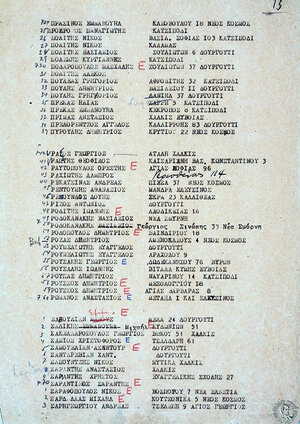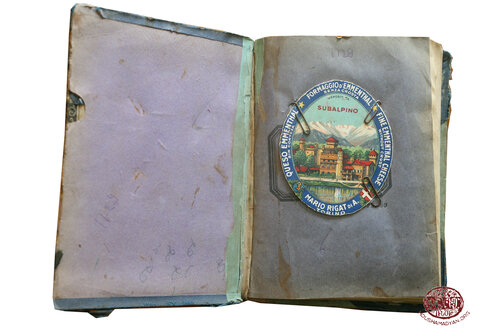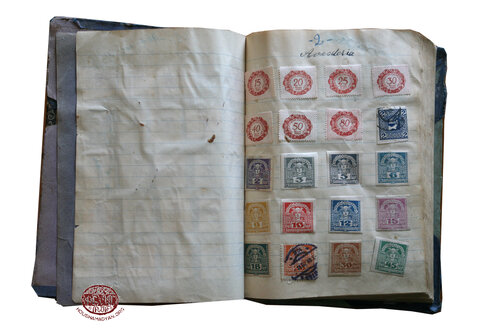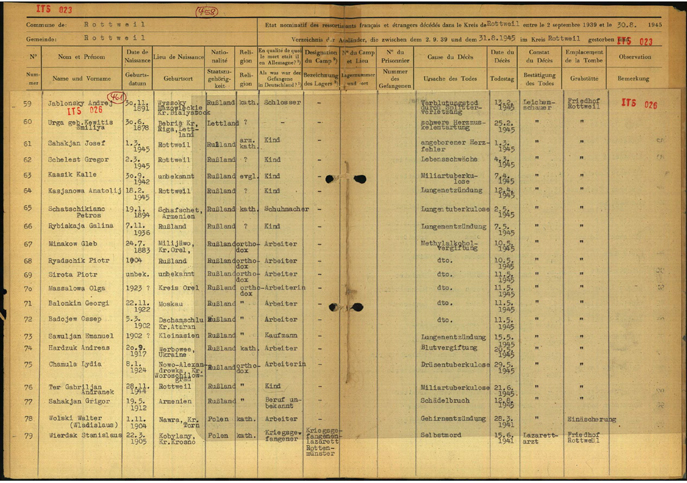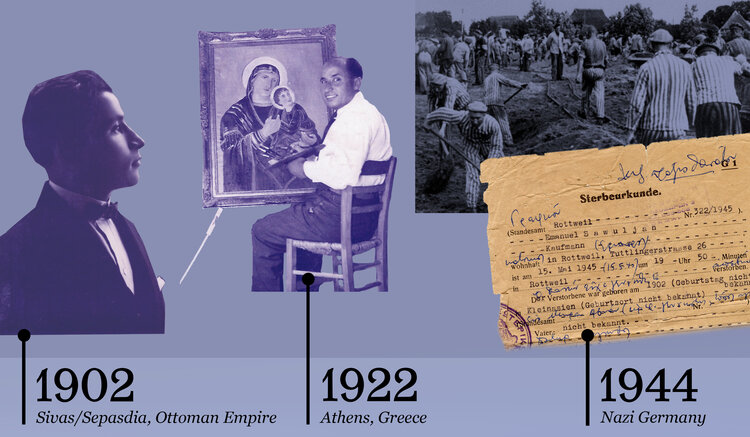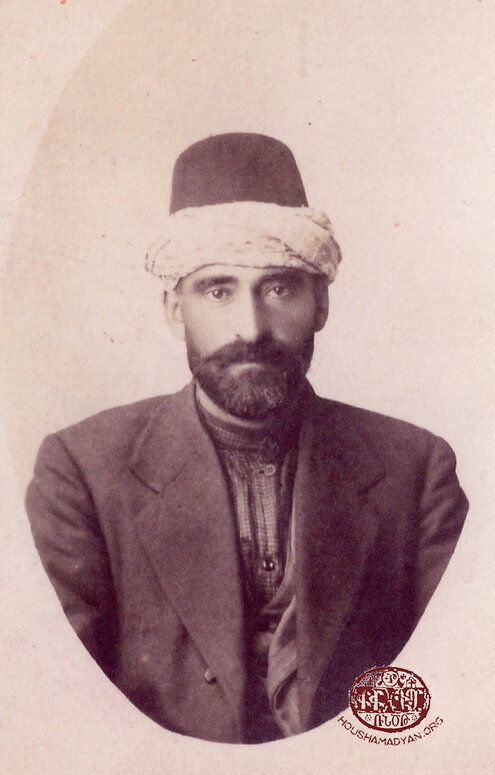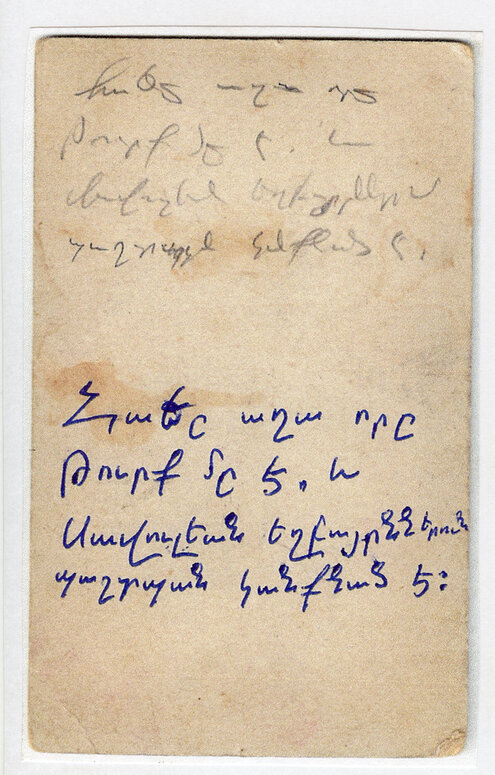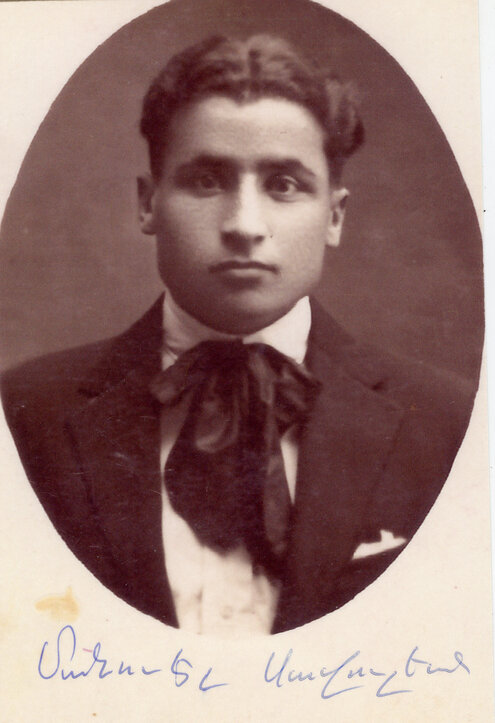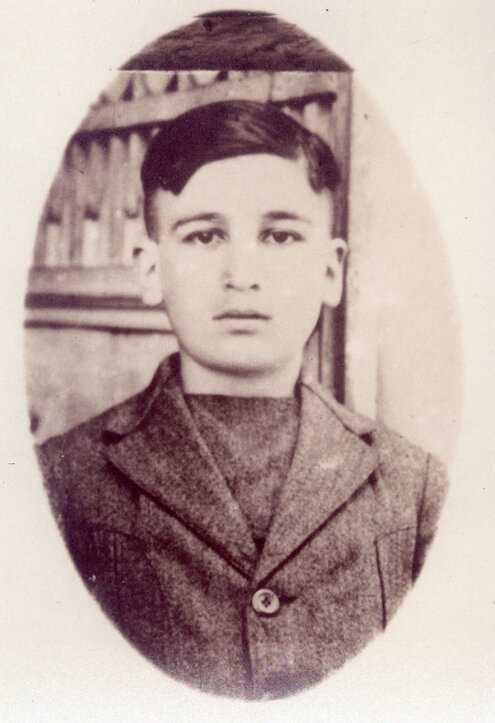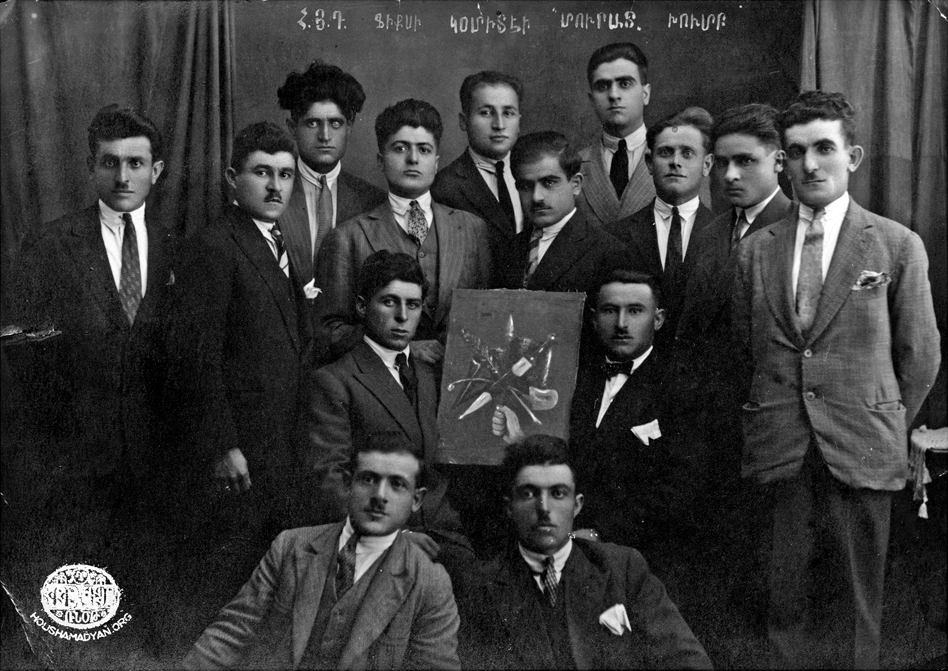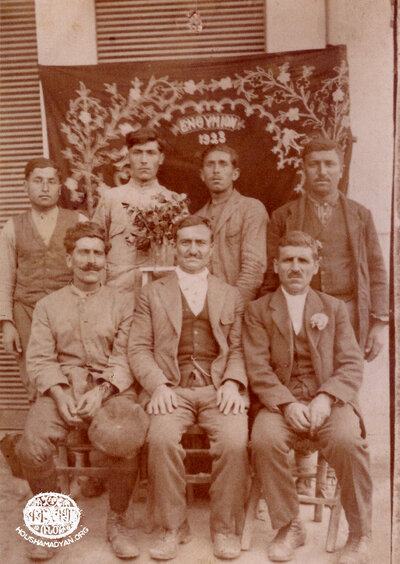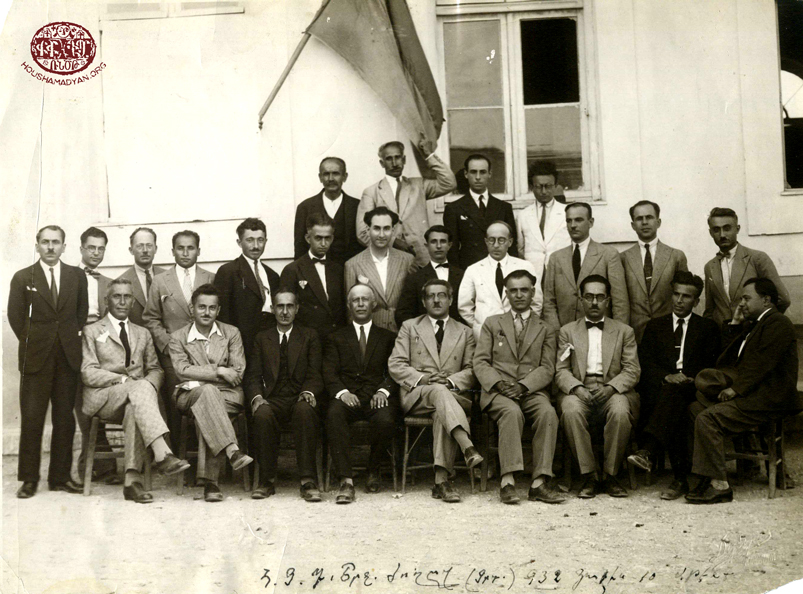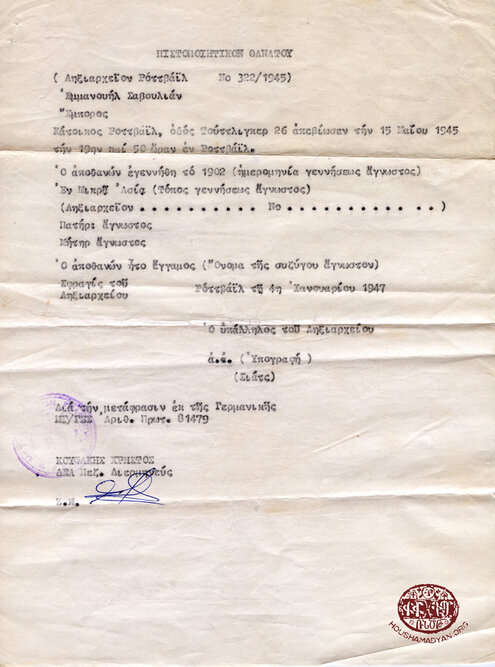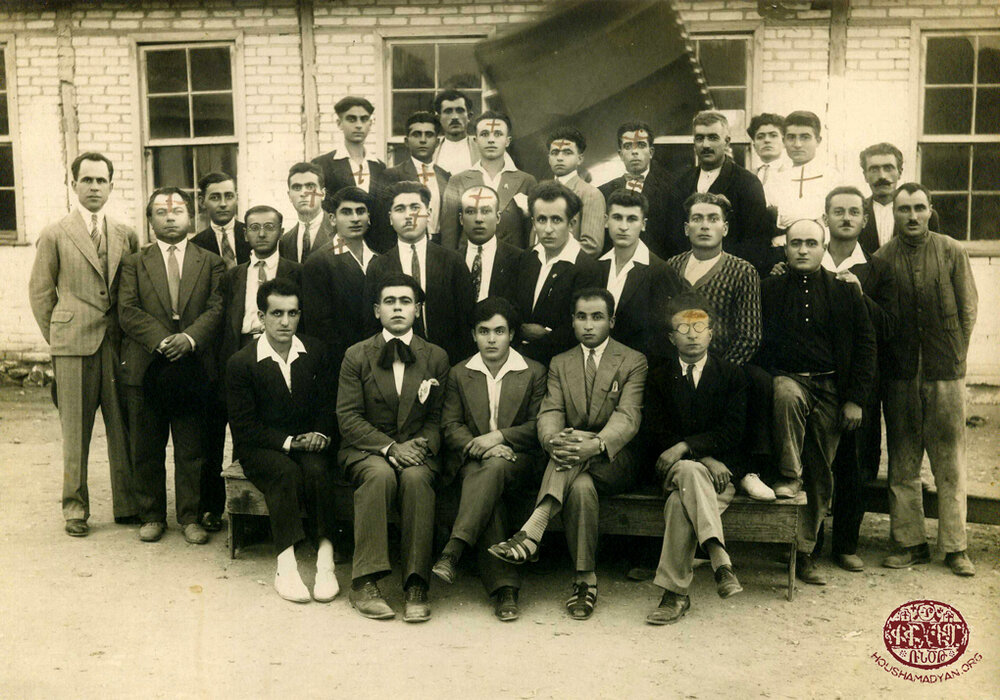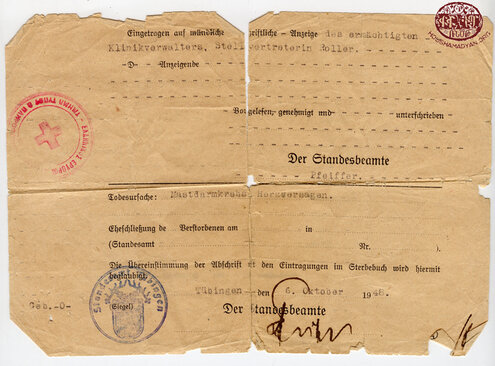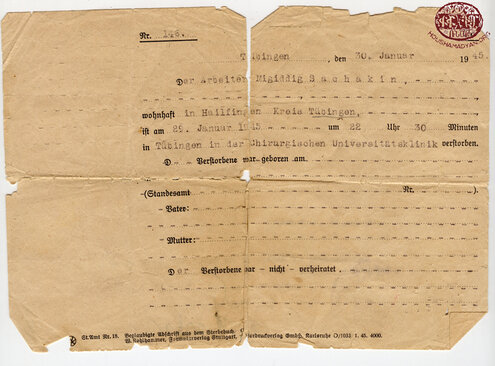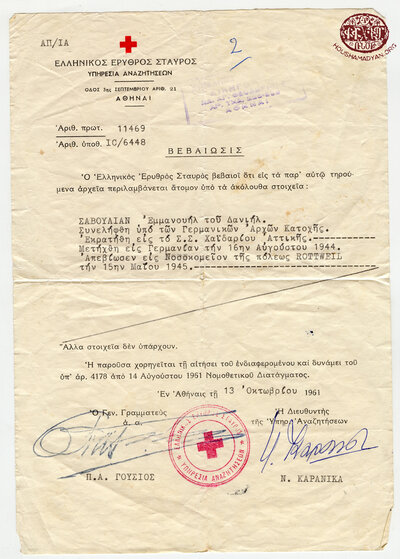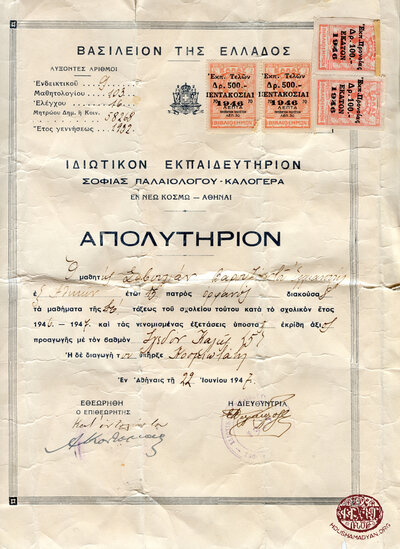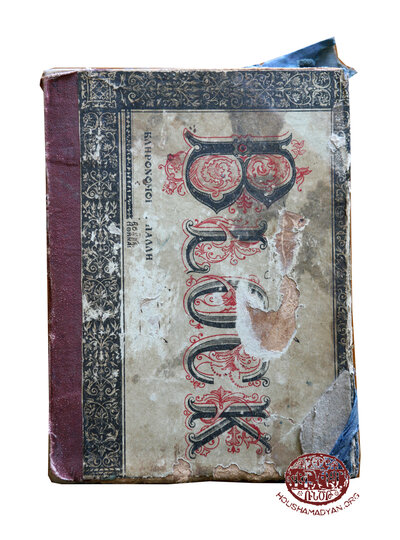Savoulian Collection - Athens
Translator: Simon Beugekian, 20/01/22 (Last modified 20/01/22)
This page was prepared collaboratively with the “Armenika” periodical of Athens.
The Savoulian family originally hailed from Sivas/Sepasdia. Manouel Savoulian was born there in 1902. He grew up as one of 12 siblings. When the 1915 Armenian Genocide began, the entire family was uprooted. We know only of four survivors – Manouel and his three brothers Kevork, Dzavag, and a brother whose name is not known.
The four brothers survived thanks to the actions of a righteous Turk, Hadji Agha. We know little about this important episode in the family’s history. But we do know that in future years, Manouel kept a photograph of Hadji Agha. The photograph had an inscription on the back, which read: “Hadji Agha, a Turk who protected the Savoulian brothers.”
After the end of the First World War, the four brothers were presumably entrusted to an orphanage. In 1922, they appeared in Greece. We have no details regarding the circumstances and various stages of their journey from the Ottoman Empire to Greece. However, within a few years of their arrival, two of Manouel’s brothers died. We know nothing of the fate of the fourth.

Manouel Savoulian settled down in the Dourghouti/Fix neighborhood of Athens, where thousands of other Armenian refugees had found shelter. By profession, he was a weaver. In 1931, he married Dzaghgan Mousheghian, who was born in the city of Kurkaghach (Kırkağaç), located north of Izmir. Back in her hometown, Dzaghgan had already been married once, to Avedis Melkonian, and had two children from that marriage, Diran and Armine. She and her family had been living in Smyrna under Greek occupation in 1922 when Turkish forces captured the city. Dzaghgan’s first husband was killed by the Turks, and she and her children had fled to Greece. There, she remarried, this time with Manouel. The couple had two sons, Vahakn and Varoujan. Dzaghgan was one of the most active members of the Dourghouti/Fix chapter of the Armenian Red Cross.
In his turn, Manouel enthusiastically participated in community life. He was a member of the Armenian Revolutionary Federation, the Armenian Red Cross, and the Sepasdia Compatriotic Union. In the early 1930s, he helped organize an Armenian book exhibit hosted by the Armenian Catholic school in Fix.
Manouel Savoulian was an amateur painter. He was an avid reader and had a large library.
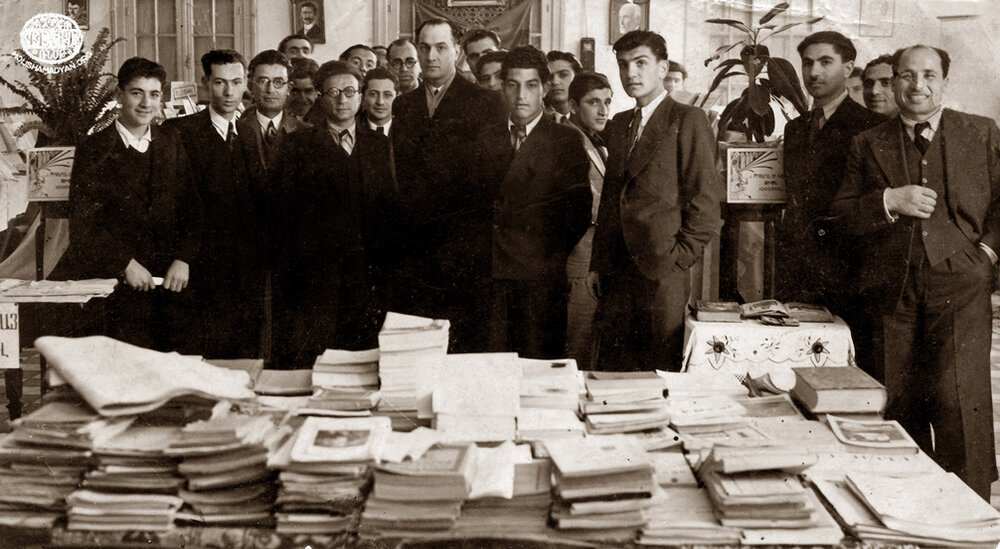

During the Second World War, when Greece was occupied by Nazi forces, areas with large refugee populations became major hubs of resistance. One of these areas was the neighborhood of Dourghouti, where Manouel Savoulian and his family lived, alongside several thousand Armenians. Many of the members and leaders of the local, underground resistance groups were also Armenian. On August 9, 1944, Wehrmacht forces surrounded the neighborhood. This was a type of punitive operation that was known in Greek as bloko (το μπλόκο). An entire neighborhood or village would be surrounded by troops, who would then arrest suspects en masse. The Dourghouti bloko operation resulted in the arrest of approximately 3,000 individuals, of whom 400 were identified in a list prepared by the Greek Red Cross. Notably, out of these 400 prisoners, 200 were Armenian. Generally, suspects arrested in such operations were not properly interrogated. Many were summarily executed, and others were sent to local prisons, then deported to one of the concentrations camps in Germany. A few were pressed into forced labor battalions.

We do not know if Manouel Savoulian was a member of the anti-Nazi resistance. Most probably, he was among the many who were arrested by the Nazis without any evidence or investigation. He was imprisoned in Greece for a few days, after which he was shipped off to Germany. We do not know much about his life in Germany. We do know that he had the status of a prisoner and lived in the city of Freudenstadt, in the state of Baden-Württemberg. While there, he suffered an infection of the lungs. He was admitted to the hospital in the nearby city of Rottweil, where he died on May 15, 1945. He was buried in Germany.
After Manouel’s death, his friends found a slip of paper in his pocket. It bore his final message to his sons:
Dear Varoujan and Vahakn Savoulian,
Throughout your life, make every effort, above all else, to live as exemplary men, and then as exemplary Armenians. If necessary, sacrifice yourselves for the sake of national ideals. Dying for a noble cause is to live fully.
Your father, who is weary with suffering, M. T. Savoulian.
Sources
- “Manouel Savoulian,” Azad Or, 23 September 1945, Athens.
- Pantelis Arapinis, “List of Hostages” (in Greek), Armenika Periodical, n. 98, August-October 2018, Athens.
- Azad Or, 17 July 1978, 34th year, n. 10122, Athens.
- Nshan Savoulian’s testimony. Nshan is Manouel Savoulian’s grandson and Varoujan Savoulian’s son.


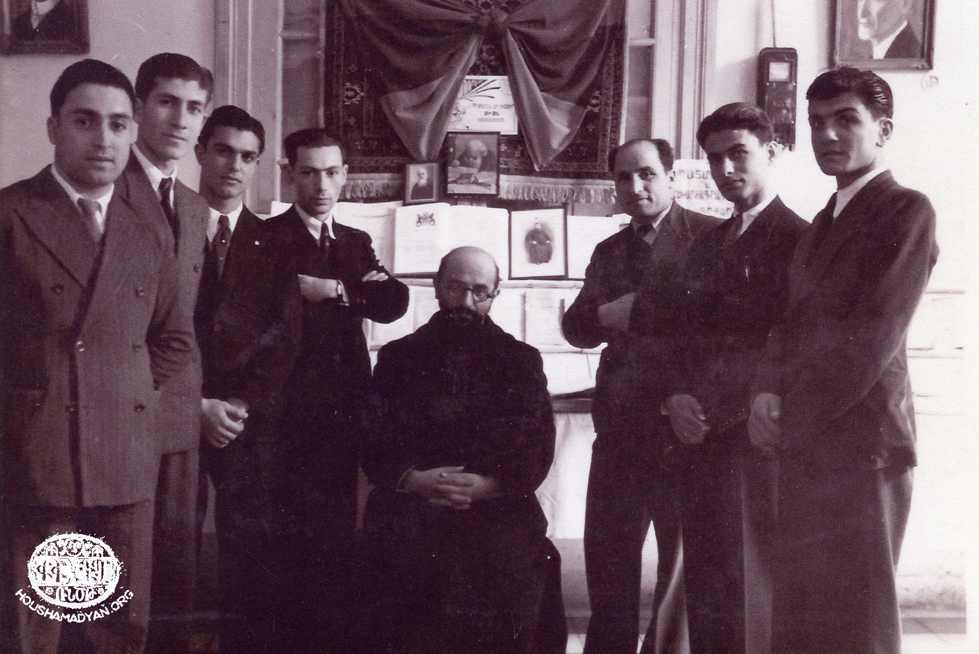
Group photograph of the participants of the 9th Regional Congress of the Armenian Revolutionary Federation, held in Athens on July 10, 1932. Seated, left to right: unidentified individual, Mihran Papazian, Hrant Tarbasian, unidentified individual, Shavarsh Misakian, Sos Vani, Garo Kevorkian, Mgrdich Papazian, and Kevork Garavarents. Standing, middle row, left to right: Minas Topdjian, Andon Gazel, Garo Deokmedjian, Manouel Savoulian, Setrag Koharouni, Dr. Yeghia Arshagouni, unidentified individual, unidentified individual, Hovhannes Chakurian, unidentified individual, Kapriel Lazian, and Haroutyun Mouradian. Back row, standing, left to right: Mihran Amirian, unidentified individual, Nazaret Hovardian, and Manoug Manougian (Source: "Armenika" periodical, Athens).
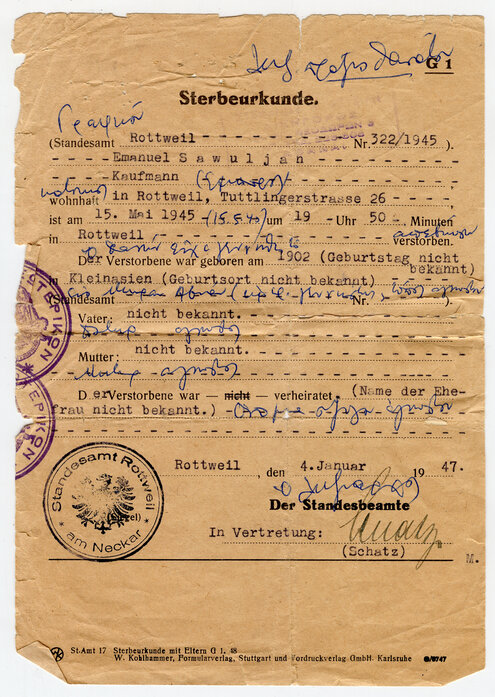
Members of the Armenian Revolutionary Federation, in the courtyard of Dourghouti/Fix neighborhood's Armenian Church, Athens, 1933.
Front row, seated, from left: Barkev Nadjarian, Krikor Bedrosian, Simon Eshenian, Manouel Savoulian, Manoug Manougian.
Second row, standing, from left: Kapriel Lazian, Yeghishe Der Garabedian, Mihran Pattougian, Vazken Yesayan, Arsen Simonian, Mampre Touradjigian, Kapriel Kaprielian, Aram Kaprielian, Aram Simonian, Hrant Nalbandian, Haroutiun Atoragalian, Mihran Papazian (with his two hands on the shoulders of the man standing in front of him), Khachig Bedrosian, Tsolag Shahnazarian.
Back row, standing, from left: Hagop Djabbarian, Krikor Derderian, Armenag Der Ghougasian, Yervant Apostolian, Mihran Boghosian, Garabed Maghoukian, Hovhannes Der Khachadourian, Mihran Baronian (Source: "Armenika" periodical, Athens).

The Savoulian family has also preserved this certificate, which does not refer to Manuel Savoulian. It refers to another man, who was probably another forced laborer in Germany, and who had become friends with Manouel. The certificate provides the man’s name as Migiddig Sachakin, who lived in the city of Hailfingen (in the area of Tübingen). He died on January 29, 1945, at the hospital of Tübingen. His cause of death was bowel cancer and cardiac arrest. The certificate was issued by the Tübingen municipality on October 6, 1948.
1. A certificate issued in the name of Manouel Savoulian by the Greek Red Cross, dated August 13, 1961. Manouel’s father’s name is given as Taniel. The certificate states that Manouel was arrested by the Wehrmacht and imprisoned by the SS for a short time in Haidari. He was transported to Germany on August 16, 1944; and died at the Rottweil hospital on May 15, 1945. Haidari was one of the largest Nazi concentration camps in Greece, located in the northwest of Athens. Many of the prisoners detained there were later transferred to German concentration camps.
2. The Greek primary school diploma of Varoujan Savoulian (Manouel and Dzaghgan’s son). It certifies that Varoujan completed the sixth grade in the 1946-1947 school year. The diploma is dated June 22, 1947; and was issued in Athens.
